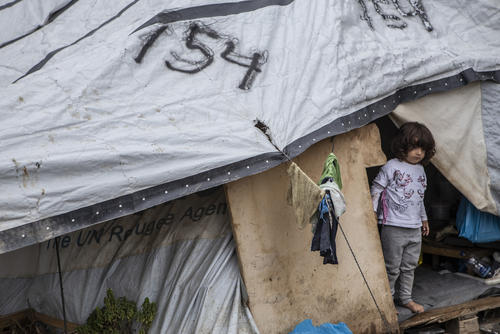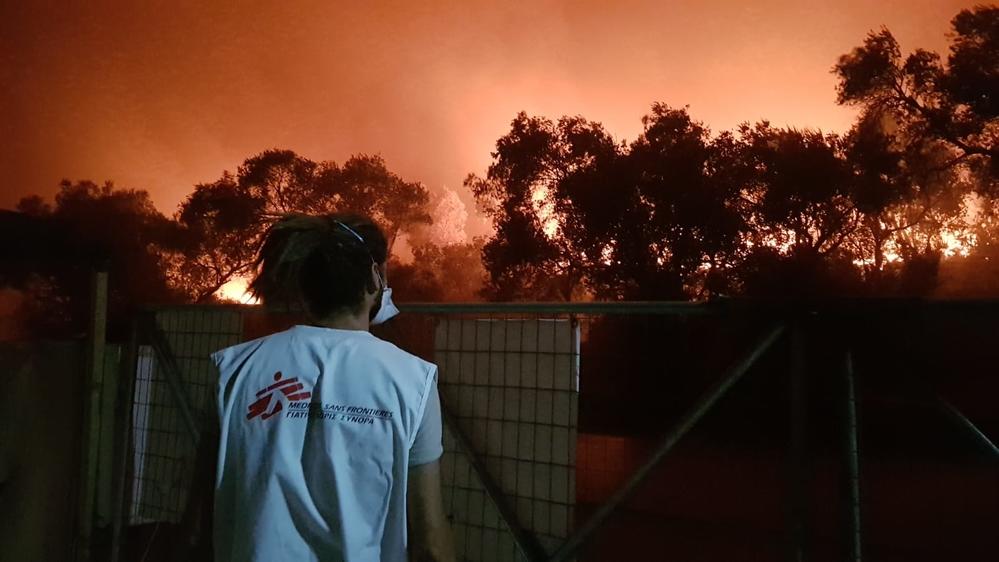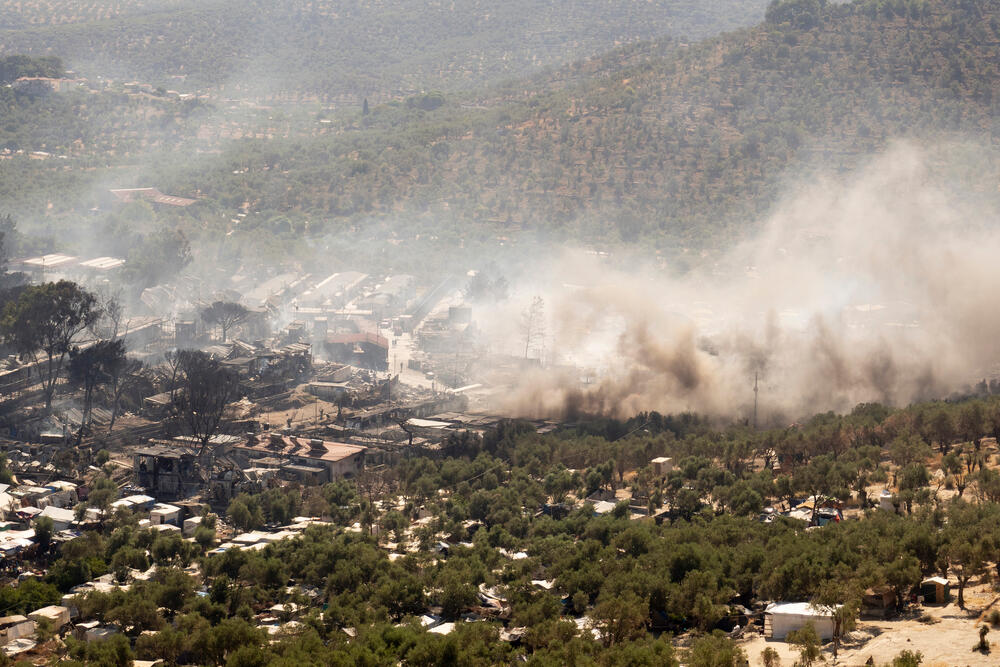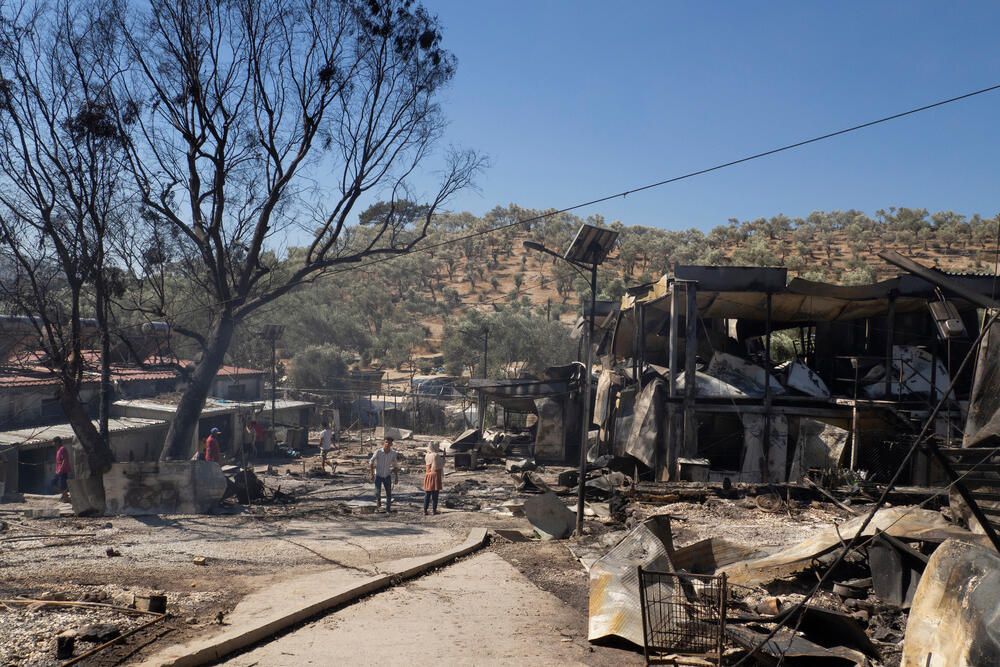Moria fire: 12,000 people on the streets
Moria camp on the Greek island of Lesbos has been completely destroyed by fire. The camp was home to people seeking safety in Europe, many having fled conflict and persecution.
Several fires erupted in the Moria reception centre on Lesbos on the night of 8 September, leaving the camp almost entirely destroyed and forcing about 12,000 men, women and children to evacuate the site with no alternative place to stay.
We saw an exodus of people fleeing from a burning hell with nowhere to go. Children are scared and parents in shock
Marco Sandrone, Médecins Sans Frontières / Doctors Without Borders (MSF) coordinator in Lesbos, shared this from the scene:
“Our teams saw the fire spread across Moria and rage all night long. The whole place was engulfed in flames.
"We saw an exodus of people fleeing from a burning hell with nowhere to go. Children are scared and parents in shock. We are relieved that there seem to be no victims and we are working now to address the immediate needs."
Inhumane conditions
Almost five years of trapping people in these conditions has led to tension and despair which has only increased over the last five months due to restricted movements in the camp, hastily justified as a public health measure amidst the COVID-19 pandemic.
Following the recent confirmation of positive cases of COVID-19 within the camps residents, the increasing restrictions to the population have made the situation unbearable.
“As a medical humanitarian organisation, MSF know that if you do not have the trust and the understanding of your population you can’t control an outbreak," says Sandrone.
"How can state authorities keep 12,000 people tightly trapped in inhumane conditions and tell them that they have to respect physical distancing? They have to queue even to receive some food everyday.
“There is no question as to the cause of this fire: the years-long orchestration of human suffering and violence produced by European and Greek migration policies are to blame.”
The fire has destroyed the Dutch-donated COVID-19 medical facility and has interrupted all the medical services available for the refugee population, including the MSF pediatric clinic.
Ignored warnings
MSF has been warning states about conditions in the camp for years and most recently has been pushing the Greek health and migration authorities to implement an adequate COVID-19 response plan for Moria.
However, the Greek authorities failed to put such a response in place. The EU and other EU member states have not stepped up to their responsibility to resolve this situation either.
MSF calls on the Greek authorities to immediately adopt an emergency response plan and to evacuate all these people to a safe place on the mainland or to other European countries.
MSF is ready to provide the support that is needed during the emergency response.
Images from Moria

Tell the UK government to help refugee children
MSF in Moria, Greece
Médecins Sans Frontières/Doctors Without Borders (MSF) has adapted activities to respond to the enormous needs following the fires. Our teams run a clinic inside Moria, as well as a new clinic in a warehouse close to where people are sleeping.
In the first two days since the disaster, our teams have treated 164 patients in these two clinics, including children and pregnant women. Consultations have mostly concerned trauma injuries caused by accidents on the island. One ten-day-old baby was seen with symptoms related to the fires and tear gas.


